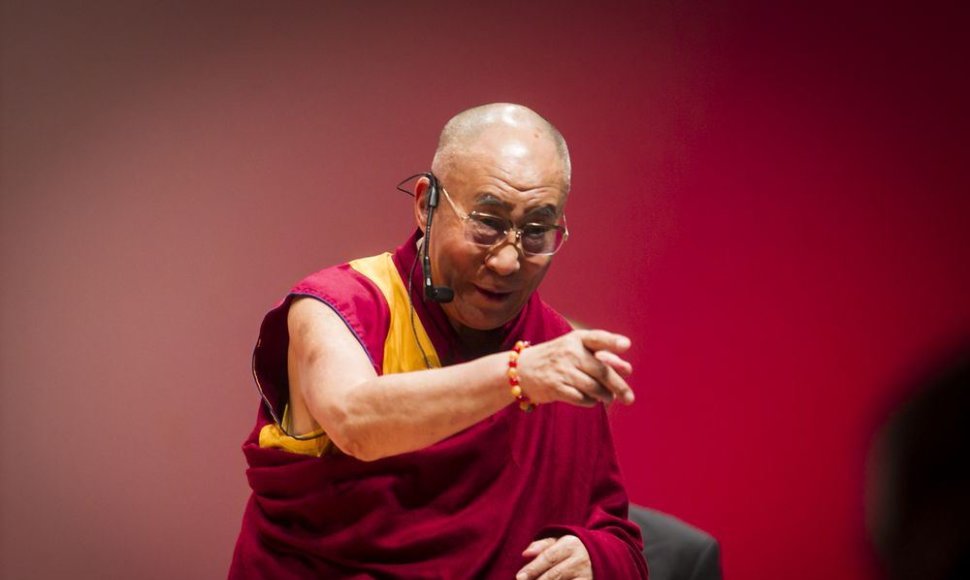Answering questions from the public after a lecture in the Lithuanian capital, the Dalai Lama emphasized that he felt support from the Chinese community of intellectuals and Buddhists.
"We are not seeking independence," said the winner of the Nobel Peace Prize on a few occasions.
At the same time, the Dalai Lama stressed the need to protect the Tibetan language and the Buddhism culture, which is only possible under a "meaningful autonomy."
"So already some signs of changing things are coming. So I am quite optimistic. A number of the Chinese intelligentsia, a number of Chinese Buddhists and very many are showing their concern about Tibet, about this problem, and many of them showing solidarity with us," the Dalai Lama said.
"Today in China, the Buddhist population is over 400 million, many of these Buddhists show genuine interest in Tibetan Buddhism," he added.
"So now the leaders (of China are) trying to approach in more realistic ways. So that's a hopeful sign," the Dalai Lama said in Vilnius.
According to data provided by non-governmental organizations, about 120 Tibetans have set themselves on fire since 2009 in protest of Chinese oppression.
The Dalai Lama, 87, started his four-day visit in Lithuania on Wednesday. On Wednesday, he met with President Dalia Grybauskaitė for an informal conversation. He also visited the parliament and Vilnius Town Hall on Thursday.
The first known leader ruled over Tibet in 127 B.C. Tater, Tibet was an independent country for centuries and was linked to the Chinese Empire as an autonomous country.
In 1941-1949, Tibet was entirely independent. After the 1949-1951 invasion, China retorted to violence and threats to force Tibet into signing the treaty on "peaceful liberation."
The official Beijing has accused Dalai Lama, who fled to India in 1959 after a failed uprising in Tibet against the Chinese rule, of instigating separatism. Meanwhile, the spiritual leader maintains that he only wants more autonomy for his homeland in the Himalayan mountains.





















